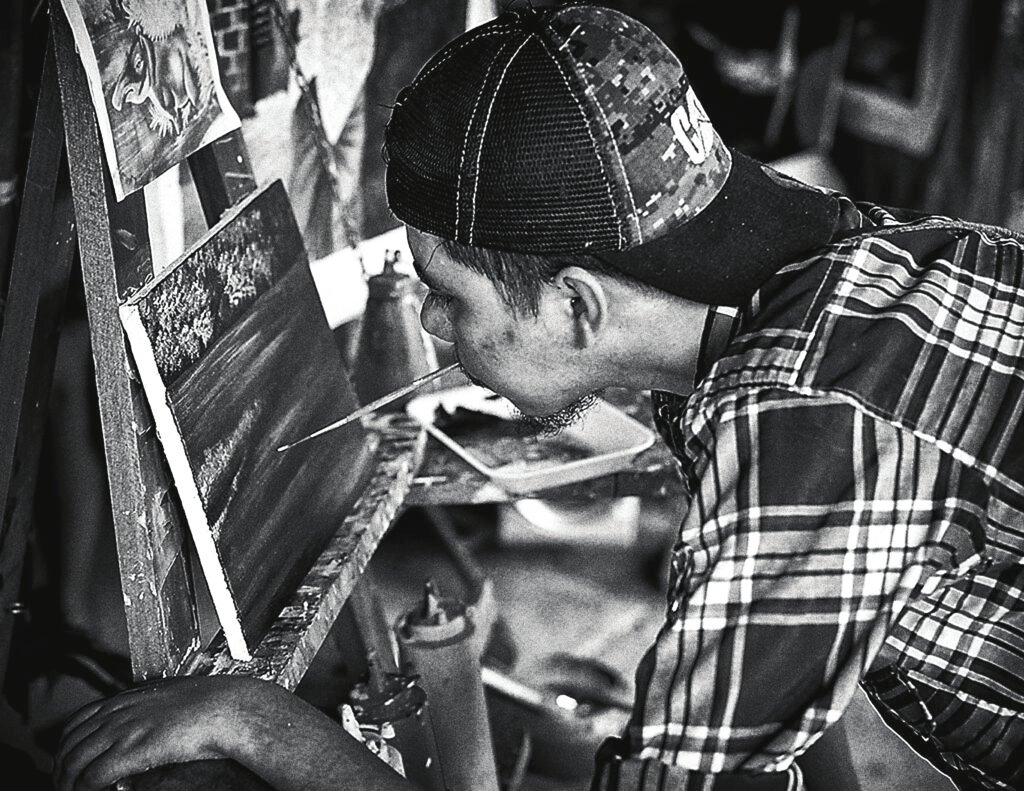
In the shaded corner of an open-air market in Dangriga,
where the breeze smells of sea salt, tamarind, and sun-warmed wood,
a young man sits in his wheelchair,
canvas propped before him,
a paintbrush held gently between his teeth.
His name is Jelani, twenty-three,
born with legs that never moved and hands that never quite listened.
But his mouth—
his jaw—
steady as a drumbeat,
delivers color like prayer.
Each stroke is patient.
Deliberate.
A sky made of crushed turquoise and bone-white clouds,
a jungle dripping green like breath,
the sea lit with streaks of gold that the sun itself would envy.
People stop.
Some stare.
Some whisper:
“How does he do it?”
He doesn’t answer.
He paints.
Jelani’s father was a fisherman who vanished into a storm.
His mother sells coconut bread three stalls down.
She watches him sometimes from behind her counter,
eyes soft, lips moving in silent encouragement.
He taught himself to paint.
Watched YouTube videos on a cracked phone propped between mango crates.
Bit down on a pencil until he could control it.
Taught his neck to move like a wrist.
His breath to steady the lines.
His will to shout when his body could not.
Sometimes tourists buy his paintings.
Sometimes they don’t.
Sometimes they only take pictures and leave.
But Jelani keeps painting.
Because every canvas is a place where he runs.
Where he climbs trees.
Where he dives into blue water and dances.
And when he finishes a piece,
he leans back,
spits the brush into a cloth-lined tray,
and smiles—
just a little—
as if to say:
“I was never broken. Only different.”